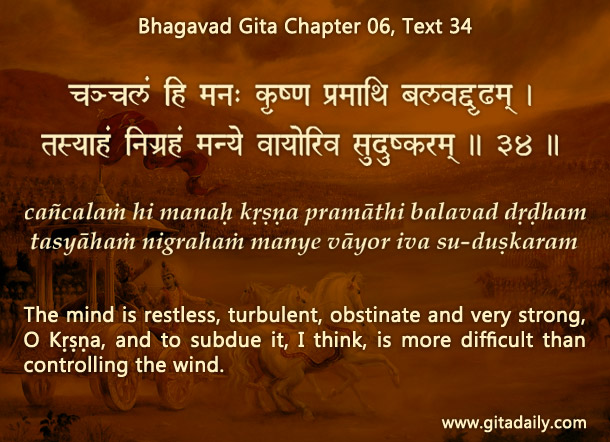How our mind misdirects our energies – Suppose a child is trying to heat some water on a stove and starts stoking the fire. But somehow the fire starts spreading beyond the stove to the nearby inflammable objects. The child panics and starts fanning the fire, thinking it will extinguish the fire, but that only spreads the fire further.
We can understand such behavior as arising from a child’s immaturity, though the consequences can still be tragic. But little do we realize that we ourselves sometimes behave similarly because our mind is like a child. Pertinently, the Bhagavad-gita (06.34) cautions that the mind is restless and fickle, as if it were a child.
When something bad happens to us, our mind starts worrying, lamenting, resenting. And in its such hyperventilation, it often overlooks the bad that is happening through us — we don’t notice how we are making things worse by our indiscreet choices. Undoubtedly, some bad things happen to us because of factors beyond our control. Some of us are subjected to natural calamities or in today’s world pandemics. However, when such things happen, it is often our reaction to them that makes things worse. We may panic and become paralyzed. Or we may become reckless and do things that go against all common sense. Over time, we get ourselves into far greater trouble than we have been put into.
One of the defining insights of the Gita is that we are spiritual beings, who are different from our minds. The mind acts through us, sometimes outside our awareness or even against our better intentions. The more we become self-aware and resolve to focus on our ultimate interests, the more we can detect and reject the mind’s shenanigans that make bad things worse.
One-sentence summary:
Focus not on the bad things happening to us; focus on the bad things happening through us.
Think it over:
- How does our mind misdirect our focus?
- Think of three instances when your mind made bad things worse.
- Contemplate any adversity you are facing. How can you shift your focus to the things in your control?
***
06.34: The mind is restless, turbulent, obstinate and very strong, O Krishna, and to subdue it, I think, is more difficult than controlling the wind.


Leave A Comment